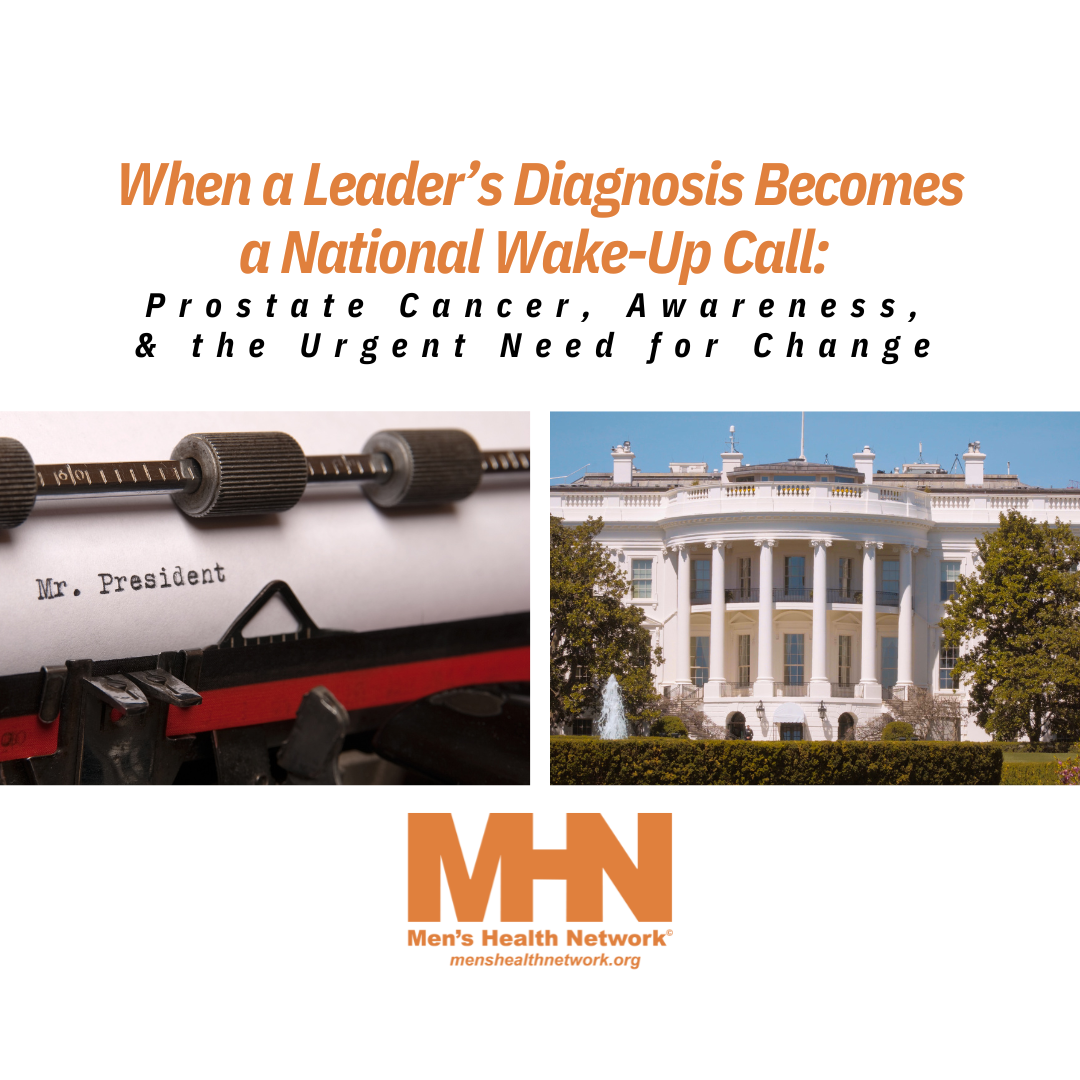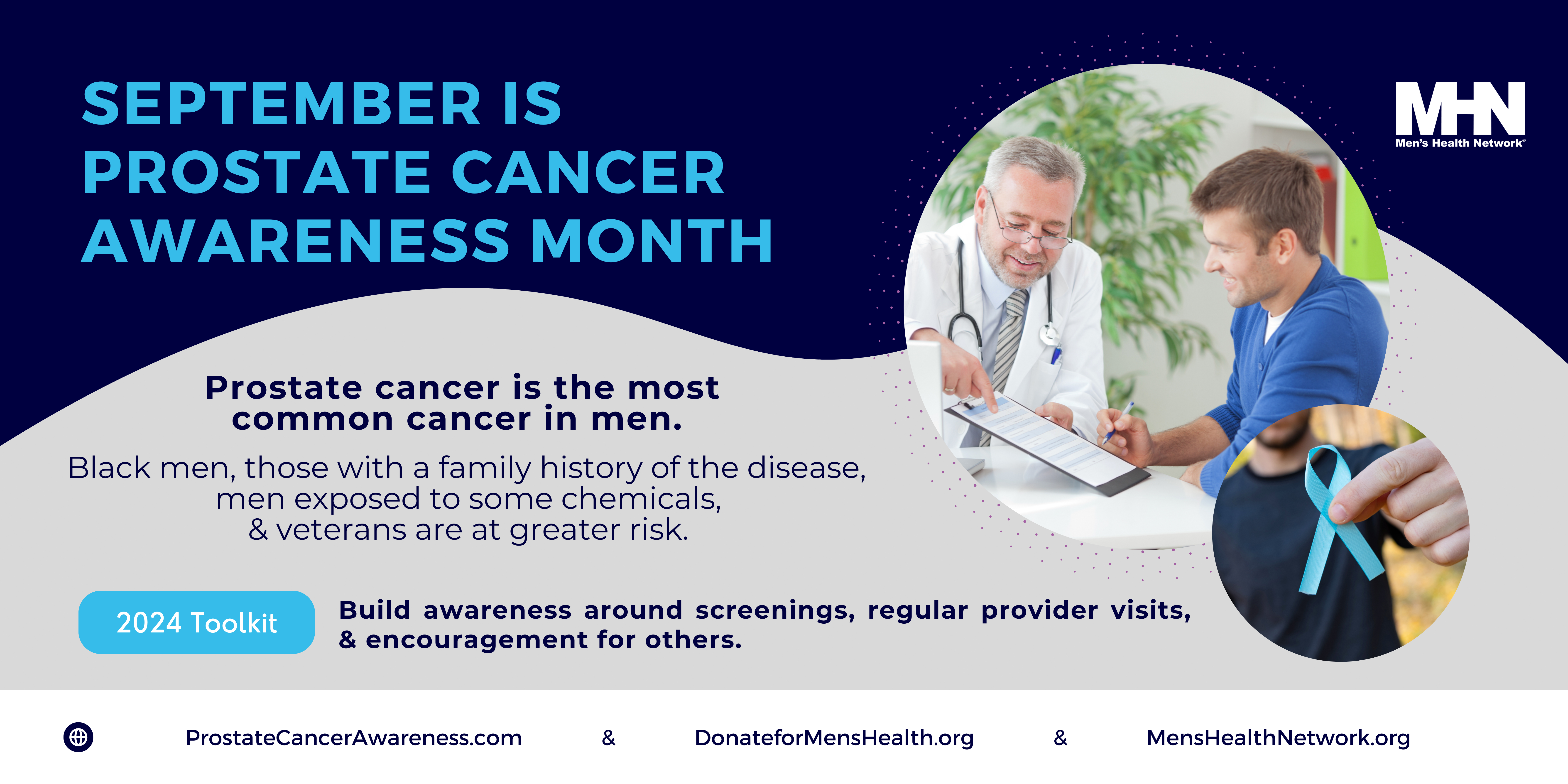Former President Joe Biden’s stage 4 prostate cancer diagnosis underscores a national failure in men’s health and preventive care. Men’s Health Network is calling for urgent reform to PSA screening guidelines, improved prostate cancer awareness, and expanded support for men’s healthcare—especially for those over age 70. Prostate cancer is highly treatable when detected early, making timely prostate screenings critical. This moment is a wake-up call to prioritize men’s health policy, close the Lifespan Gender Gap, and increase health education for men.Continue reading
Tag: PSA Test
September is Prostate Cancer Awareness Month – What You Need to Know
Prostate cancer is a critical health issue that affects a large number of men worldwide. With September designated as Prostate Cancer Awareness Month, it’s an opportunity to promote awareness, encourage regular health screenings, and educate men about early detection and treatment. Prostate cancer is the most common cancer among men, and understanding the risks, symptoms, and prevention strategies is essential for reducing its impact. This blog covers key information on prostate cancer and how you can get involved in raising awareness and supporting the cause.Continue reading
Treatment Options For Prostate Cancer
Active Surveillance/Watchful Waiting These are not types of treatment, but ways to monitor prostate cancer when it is very low-risk or slow growing. During active surveillance or watchful waiting, your doctor will keep track of the prostate cancer using various tests including a PSA blood test, digital rectal exam, and ultrasound. If the prostate cancer...Continue reading
Understanding the New PSA Testing Guidelines
Recently the American Urological Association (AUA) announced new guidelines for prostate specific antigen (PSA) testing. These guidelines were designed to help urologists, and ultimately patients, reduce prostate cancer mortality by making informed screening decisions. These recommendations were based on comprehensive literature reviews and the strength of the existing evidence.
Know Your Prostate: Top Surgeon Offers Free Prostate Cancer Screenings
Dr. David Samadi, a world-renowned prostate cancer surgeon is all set to conduct free prostate cancer screenings at the Chian Federation, 4401 Broadway in Astoria, New York 11103 on Saturday, February 16 2013. Men who attend this screening event will receive Prostate-specific antigen (PSA) blood tests and/or digital rectal exams (DRE) at no charge between...
Informed decision making with prostate cancer screening options: ‘WHY’?
The focus of prostate cancer prevention research has switched FROM advocating for screening TO advocating for informed decision-making among men. In other words, we are now trying to inform men of their options and advocate that they have an open and honest dialogue with their physician on their treatment options. Joseph-Williams et al (2010) looks...Continue reading



